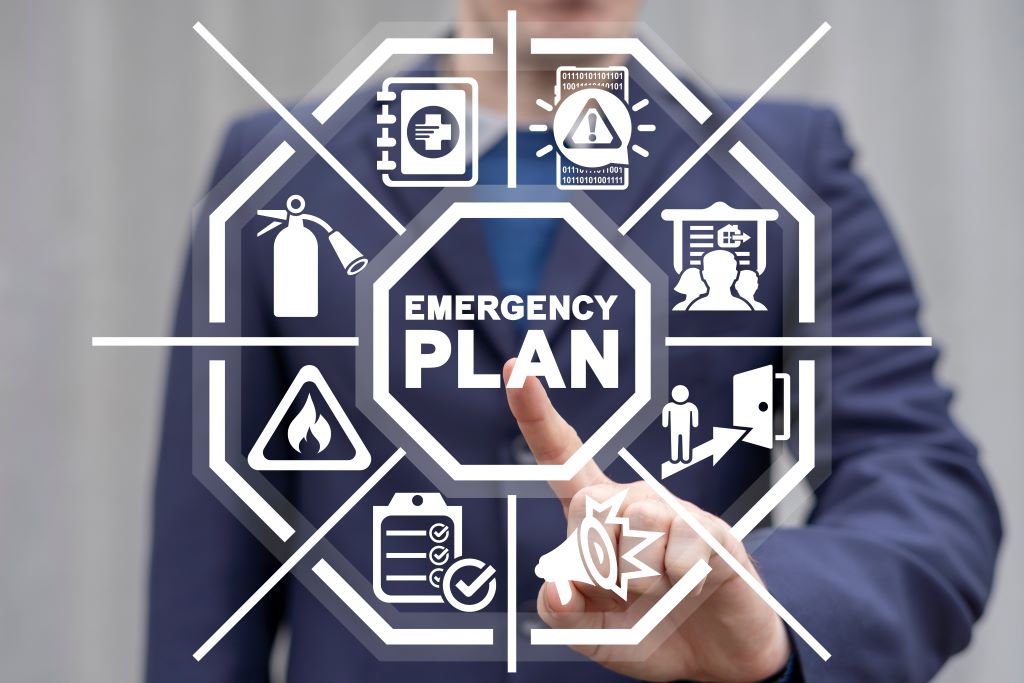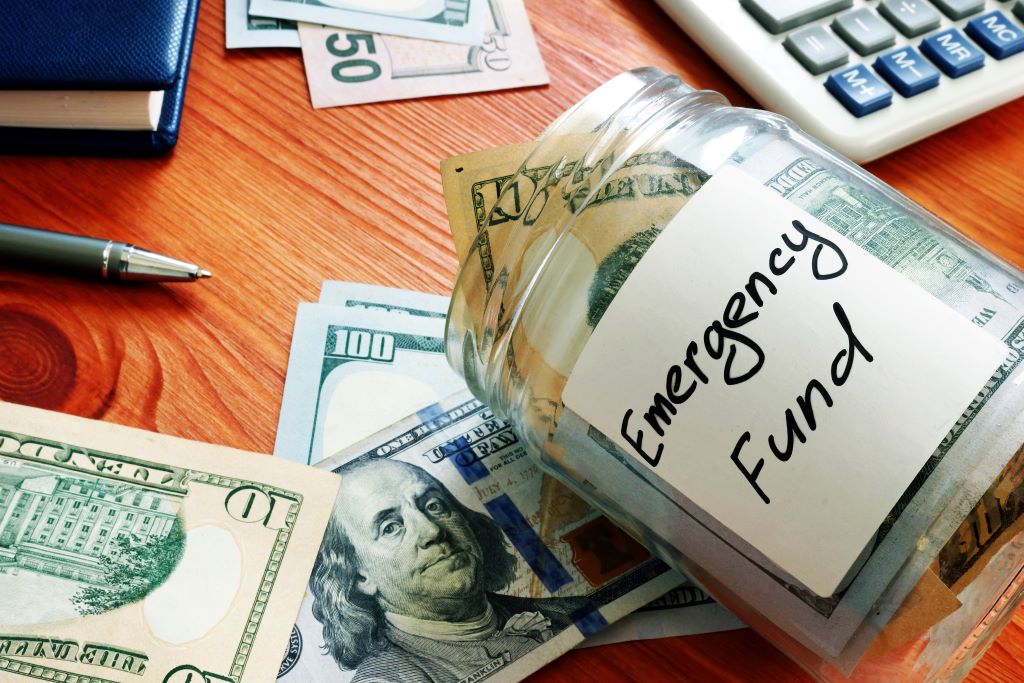September is National Preparedness Month, a time when we focus on preparing for a wide range of emergencies. While many people immediately think of natural disasters, it’s important to remember that emergencies can come in many forms, including financial crises. In this blog post, we will explore how to prepare for various types of emergencies and provide tips to help you prepare if you’re ever faced with financial emergencies.

How to Prepare for Financial Emergencies
Emergencies can present themselves in a variety of ways, financial crises being one of them. Financial emergencies can happen at any moment. This is why it’s important to prepare yourself in case you find yourself in this situation. Below are a few ways you can prepare for a financial emergency.
Emergency Fund: Aim to save at least three to six months’ worth of living expenses in a separate savings account. This money can help you cover essential bills and expenses during financial emergencies.
Budgeting and Financial Planning: Create and stick to a budget that accounts for both essential and non-essential expenses. Consider working with a financial advisor to develop a financial plan tailored to your goals. Want to give it a go yourself? Make sure to read through our guide for how to budget first for what you need to know to get started!
Insurance: Review your insurance policies, including homeowners, renters, and health insurance. Make sure you have enough coverage to protect yourself and your assets in case of unexpected events. Make sure to check out our blogs, “Finding the Best Car Insurance Rate”, and “Is Life Insurance Worth it?” when making these decisions.
Debt Management: Minimize high-interest debts and explore debt consolidation or refinancing options if needed.

How to Build an Emergency Fund
Building an emergency fund is crucial for financial security. Start by setting a specific savings goal, such as three to six months’ worth of living expenses. Create a separate savings account dedicated to your emergency fund, and consistently contribute to it each month. Cut non-essential expenses, automate your savings, and consider additional income sources, like a side gig, to help build your savings faster.
How Much Should I Save for Financial Emergencies?
Financial experts generally recommend saving at least three to six months’ worth of living expenses in your emergency fund. However, the exact amount can vary based on your situation. Consider factors like your job stability, monthly expenses, and the availability of a support network when determining the your savings goal.
What Are the Best Savings Accounts for Financial Emergencies?
Look for savings accounts that offer high-yield interest rates and easy access to your funds. Online banks often provide competitive rates and may have lower fees. Consider a high-yield savings account, money market account, or a certificate of deposit (CD) depending on your financial goals.
What is the 50/30/20 Budget Rule, and How Does it Help in Emergencies?
The 50/30/20 budget rule suggests setting aside 50% of your income for necessities (like housing and utilities). 30% is to be used for discretionary spending (entertainment, dining out), and 20% is set aside for savings and debt repayment. This rule helps you reserve a portion of your income dedicated to savings, including your emergency fund. This can provide a financial cushion during emergencies.
To draft your own 50/30/20 budget, try using a budget calculator.*
How to Create a Budget for Financial Emergencies
Start by listing all your monthly expenses and categorizing them into necessities and discretionary spending. Prioritize necessities, look for areas where you can cut back, and set aside a portion of your budget to savings for emergencies. Regularly review and adjust your budget as needed.

What Should I Do if I Lose My Job and Have No Savings?
If you lose your job without savings, consider the following steps:
- Create a bare-bones budget to cover essential expenses.
- Explore alternative income sources like gig work or part-time jobs.
- Contact creditors to discuss payment options.
- Seek assistance from government programs or community organizations.
How to Prepare for Unexpected Medical Expenses
To prepare for medical expenses, consider health insurance with enough coverage. You can also build an emergency fund, prioritize preventive care, and research options like Health Savings Accounts (HSAs) or Flexible Spending Accounts (FSAs) to help with medical costs.
Is it Wise to Invest During a Financial Crisis?
It might be a good time to invest during a financial crisis, as asset prices may be lower. However, it’s important to consult with a financial advisor and carefully evaluate your risk tolerance and investment strategy before making any decisions.
How to Protect My Credit Score During a Financial Emergency
To protect your credit score during a financial emergency:
- Communicate with creditors about your situation and explore options for temporary relief.
- Avoid taking on new debt unless absolutely necessary.
- Continuously monitor your credit report for any errors or inaccuracies.
For a deep dive on credit scores, check out our blog post, “Credit Score 101: Everything You Need to Know”.
What Government Assistance Programs Are Available During Financial Crises?
Government assistance programs could include unemployment benefits, food assistance (SNAP), housing assistance, and emergency cash assistance programs. Eligibility and availability vary by location and circumstances, so contact your local government or visit official websites for specific information.
National Preparedness Month is a reminder that being ready for financial emergencies is a responsibility we all have. Remember that preparation today can provide peace of mind tomorrow, no matter what challenges may come your way. So stay informed, and stay prepared.
High-interest loans can be expensive and should be used only for short-term financial needs, not long-term solutions. Customers with credit difficulties should seek credit counseling. The opinions expressed above are solely the author’s views and may or may not reflect the opinions and beliefs of the website or its affiliates. Cash Factory USA does not provide financial advice.
* This blog contains links to other third-party website that is not endorsed by, directly affiliated with, or sponsored by Cash Factory USA. Such links are only for the convenience of the reader, user, or browser.